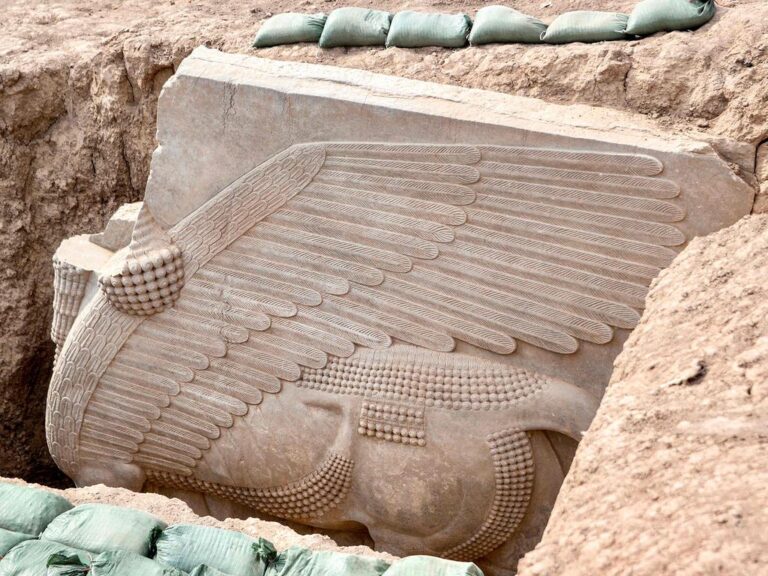An archaeological excavation in the Middle East has revealed an almost entirely intact statue of a winged deity, believed to be around 2700 years old.
This remarkable alabaster sculpture represents the winged Assyrian deity Lamassu and was discovered in northern Iraq on October 24, as reported by AFP. The sculpture, a massive 18-tonne monument, stands at 3.8 meters in height and 3.9 meters in width, with only its head missing. However, the head is already housed in the Iraq Museum in Baghdad, having been confiscated from smugglers by customs officers in the 1990s.
The excavation was led by French archaeologist Pascal Butterlin, who expressed his astonishment, saying, “I’ve never unearthed anything this big in my life before.” He pointed out that such colossal discoveries are typically associated with places like Egypt or Cambodia, not the Middle East.
The statue was originally placed at the entrance to the ancient city of Khorsabad, located approximately 15 kilometers north of the modern city of Mosul. It depicts Lamassu, an Assyrian deity characterized by a human head, the body of a bull, and the wings of a bird. Professor Butterlin, a specialist in Middle East archaeology at the University of Paris I Pantheon-Sorbonne, emphasized the exceptional attention to detail in the sculpture.
This piece was commissioned during the reign of King Sargon II, who ruled from 722 to 705 BC. It was positioned at the city’s gates to safeguard the Assyrian capital.
While first documented in the 19th century by French archaeologist Victor Place, the statue was forgotten from public records until the 1990s when Iraqi authorities recognized its importance and initiated an “urgent intervention” to protect it. During this period, looters vandalized the statue’s head, dismembering it to facilitate smuggling.
Professor Butterlin explained that the rest of the relief was spared from destruction by the Islamic State jihadist group in 2014. The residents of the modern village of Khorsabad hid it before fleeing to government-controlled territory.
originally posted in news.com.au
